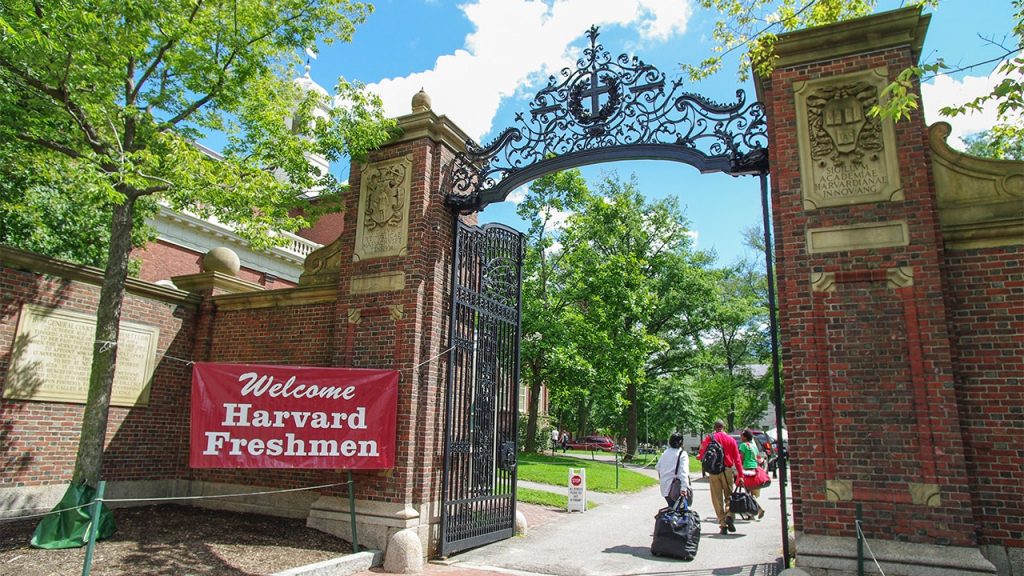In a groundbreaking move to increase access to its prestigious education, Harvard University announced that it will now provide free tuition for students whose families earn $200,000 or less annually. This new initiative aims not only to alleviate financial burdens but also to diversify the student body by bringing in individuals from various socioeconomic backgrounds. In addition to free tuition, the university will offer comprehensive support, including free health services, housing, and meals for students from families making $100,000 or less.
| Article Subheadings |
|---|
| 1) Overview of Harvard’s Tuition-Free Initiative |
| 2) Implications for Students and Families |
| 3) Broader Trends in College Tuition Policies |
| 4) Reactions from the Educational Community |
| 5) The Future of College Affordability |
Overview of Harvard’s Tuition-Free Initiative
Harvard University’s decision to waive tuition fees for families making $200,000 or less aims to broaden access to its academic programs. This announcement was made by Harvard President Alan M. Garber, emphasizing the institution’s commitment to making higher education feasible for diverse student populations. The university aims to eradicate the financial barriers that have traditionally hindered many talented students from applying. Interested parties were informed that students from families earning $100,000 and below will receive support that extends beyond tuition, including free housing, meals, and health services, which significantly enhances the overall affordability of a Harvard education.
Implications for Students and Families
The implications of this initiative are significant. By broadening the criteria for financial aid, Harvard provides an opportunity for a vast majority of families in the United States to consider applying. This shift indicates that nearly 86% of households could be eligible, thus substantially increasing the diversity of perspectives within the student body. Furthermore, lower-income students, now relieved from the financial stress of college expenses, will have the ability to focus more on academics, extracurricular activities, and their overall college experience rather than worrying about their financial obligations. Harvard’s commitment to ensuring that enrolled students can afford their education is a vital factor in fostering future leaders who come from different backgrounds.
Broader Trends in College Tuition Policies
The trend of universities adopting tuition-free initiatives is growing. This move follows examples set by several other institutions across the country, indicating a shift in the educational landscape. Notably, numerous public colleges and universities have introduced similar policies aimed at supporting students from working-class backgrounds. Senator Bernie Sanders highlighted this trend, sharing his experience with initiatives aimed at making college education more accessible to all. Harvard’s announcement reflects a broader societal acknowledgment of the escalating costs of education that have become a significant concern for many families. Harvard’s decision sets a high standard for other elite institutions and indicates a potential shift in how higher education is funded in the future.
Reactions from the Educational Community
The educational community has largely welcomed Harvard’s decision. Observers within academia believe that financial barriers play a crucial role in determining who can access prestigious educational opportunities. Initiatives like this one are likely to prompt other universities to reconsider their financial aid packages and tuition policies. There is a growing acknowledgment that diversity in the classroom enriches the learning environment; hence, by facilitating inclusivity, Harvard sets a precedent that could influence educational strategies nationwide.
“We know that paying for college is a big concern for many families, and we’re committed to making a Harvard education possible for more students than ever,”
outlined William R. Fitzsimmons, Harvard College’s Dean of Admissions and Financial Aid.
The Future of College Affordability
As more institutions adopt policies akin to Harvard’s, the implications could lead to a more equitable educational landscape. The financial aid reforms could spur discussions regarding state and federal funding for higher education, alongside potential legislation aimed at making college tuition-free at a broader scale. With the rising cost of college tuition presenting a substantial financial burden on families, Harvard’s initiative not only addresses immediate financial concerns but could also serve as a catalyst for legislative actions promoting greater affordability in higher education. The enduring appeal of an Ivy League education may become more attainable for students with fewer financial resources, marking a critical step toward an inclusive educational environment.
| No. | Key Points |
|---|---|
| 1 | Harvard University now offers free tuition for families earning $200,000 or less. |
| 2 | Students from families earning $100,000 or less will receive free housing, meals, and health services. |
| 3 | Approximately 86% of U.S. families may qualify for financial aid under the new policy. |
| 4 | The move has received widespread support from various stakeholders in the education sector. |
| 5 | Harvard aims to set a precedent for other institutions to enhance access to higher education. |
Summary
Harvard University’s initiative to offer free tuition represents a significant stride toward making education more equitable and accessible, particularly for students from low- to moderate-income families. By alleviating the financial burden associated with attending one of the country’s most prestigious universities, Harvard not only enhances its commitment to inclusion and diversity but also sets a new standard for educational institutions nationwide. This initiative may inspire broader changes in higher education financing, potentially leading to a future where college affordability is prioritized and sustainable.
Frequently Asked Questions
Question: How does Harvard’s new financial aid policy work?
The policy waives tuition for families earning $200,000 or less and provides additional support, including free housing, meals, and health services for those with incomes of $100,000 or less.
Question: What are the expected outcomes of this initiative?
The initiative aims to boost the diversity of the student body and improve access to higher education for economically disadvantaged students, ultimately fostering an inclusive educational environment.
Question: How does this compare to tuition policies at other universities?
Harvard’s initiative aligns with a growing trend among colleges and universities to offer free tuition or enhanced financial aid packages to make education more accessible, particularly to working-class students.


